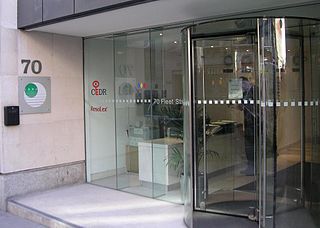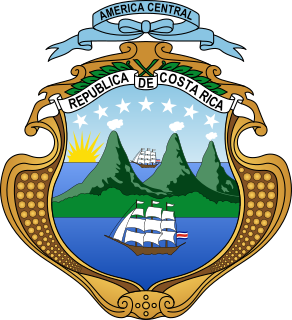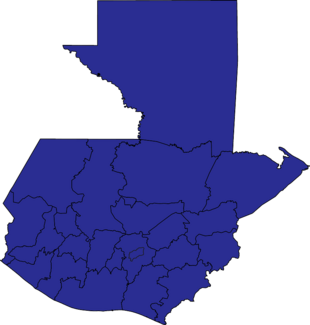Since the introduction of parliamentarism in Sweden, six national referendums have been held. Legal provisions for referendums were introduced in 1922, one year after the adoption of universal suffrage. The Constitution of Sweden provides for binding referendums, but all referendums held as of 2012 have been non-binding. The latest referendum, on adopting the euro, was held on 14 September 2003.

A seven-question referendum was held in Belarus on 24 November 1996. Four questions were put forward by President Alexander Lukashenko on changing the date of the country's independence day, amending the constitution, changing laws on the sale of land and the abolition of the death penalty. The Supreme Council put forward three questions on constitutional amendments by the Communist and Agrarian factions, local elections and the national finances.

Arbitration, a form of alternative dispute resolution (ADR), is a way to resolve disputes outside the courts. The dispute will be decided by one or more persons, which renders the "arbitration award". An arbitration award is legally binding on both sides and enforceable in the courts.

An arbitral tribunal is a panel of one or more adjudicators which is convened and sits to resolve a dispute by way of arbitration. The tribunal may consist of a sole arbitrator, or there may be two or more arbitrators, which might include either a chairman or an umpire. Members selected to serve on the tribunal are typically professionals with expertise in law and mediation, although some scholars have suggested that the ideal composition of an arbitral tribunal should include at least one economist, particularly in cases that involve questions of asset or damages valuation.

The Parsley Massacre was a mass killing that took place in October 1937 against Haitians living in the Dominican Republic's northwestern frontier and in certain parts of the contiguous Cibao region. Dominican Army troops, who came from different areas of the country, carried out the massacre on the direct orders of the Dominican dictator Rafael Trujillo. Haitian President Élie Lescot put the death toll at 12,168; in 1953, the Haitian historian Jean Price-Mars cited 12,136 deaths and 2,419 injuries. In 1975, Joaquín Balaguer, the Dominican Republic's interim Foreign Minister at the time of the massacre, put the number of dead at 17,000. Other estimates compiled by the Dominican historian Bernardo Vega went as high as 35,000.

A referendum on the Dominican Republic–Central America Free Trade Agreement (CAFTA) was held in Costa Rica on 7 October 2007. It was originally to be held on 23 September 2007, but it was postponed on 5 June 2007 due to a court challenge. Opinion polls from April, July and August 2007 suggested that a majority of voters were in favour, while a poll from June saw a majority against. It was ultimately approved by 51.56% of voters.

A referendum on the future of the Soviet Union was held on 17 March 1991. The question put to voters was

A referendum on resolving the border dispute with Croatia was held in Slovenia on 6 June 2010. Voters were asked whether the dispute should be brought before an international arbitration tribunal. The results showed 51.54% of voters in favour, with a voter turnout of 42.66%.
A referendum in Slovakia was held on 23 May and 24 May 1997. Voters in Slovakia were asked four separate questions: on whether the country should join NATO, whether nuclear weapons should be allowed in Slovakia, whether foreign military bases should be allowed in Slovakia, and whether the President should be elected directly. The government left the last question off the ballot paper, leading to both referendums failing to meet the legally required turnout threshold.

The Arbitration Act 1996 is an Act of Parliament which regulates arbitration proceedings within the jurisdiction of England and Wales and Northern Ireland.
A four-part referendum was held in Switzerland on 11 May 1884. All four were rejected by voters.

A referendum on transferring ownership to the United States was held on 9 January 1868 on the islands of Sankt Jan and Sankt Thomas, two of three main islands in the Danish West Indies. In the referendum, held by universal male suffrage, voters could approve or reject the outcome of negotiations for the sale of the two islands to the United States for US$7.5 million. The third island, Sankt Croix, was to be sold separately to the US at a later date.

A referendum on annexation by the United States was held in the Dominican Republic on 19 February 1870. The proposal was approved by 99.93% of voters, although turnout was just 30%. However, the United States Senate rejected the annexation on 30 June 1870 with a 28–28 vote.

A referendum on leasing the Samaná Peninsula the United States for 99 years was held in the Dominican Republic on 19 February 1873. The proposal was approved by 99.91% of voters, but was never implemented after President Buenaventura Báez was overthrown on 2 January 1874.

A fourteen-part referendum was held in Ecuador on 25 May 1997. Voters were asked whether they approved of the dismissal of President Abdalá Bucaram by the National Congress, the appointment of Fabián Alarcón as interim President for twelve months, the calling of a Constitutional Assembly, whether a Constitutional Assembly should be elected by direct elections or by appointment, whether spending limits should be introduced for election campaigns, whether voters should be able to modify electoral lists, whether National Assembly elections should be held alongside the first or second round of presidential elections, whether political parties that fail to cross the 5% threshold in two consecutive elections should be deregistered, whether the Supreme Electoral Tribunal (TSE) should reflect the political makeup of the National Congress, whether the National Congress should appoint managers of state-owned companies with a two-thirds majority, reforms to the justice system, allowing the Supreme Court to appoint judicial authority member, whether elected officials who commit a criminal offence should be removed from office, and whether the National Assembly should implement the 13 proposals. All eleven proposals were approved by voters.

Philippines v. China, also known as the South China Sea Arbitration, was an arbitration case brought by the Republic of the Philippines against the People's Republic of China under Annex VII to the United Nations Convention on the Law of the Sea (UNCLOS) concerning certain issues in the South China Sea including the legality of China's Nine-dash line.
A referendum is a direct vote in which an entire electorate is asked to either accept or reject a particular proposal. This article summarises referendum laws and practice in various countries.

The referendum on EU membership took place on 23 June 2016. Opinion polling for the United Kingdom European Union membership referendum was ongoing in the months between the announcement of a referendum and the referendum polling day. Polls on the general principle of Britain's membership of the European Union were carried out for a number of years prior to the referendum. Opinion polls of voters in general tended to show roughly equal proportions in favour of remaining and leaving. Polls of business leaders, scientists, and lawyers showed majorities in favour of remaining. Among non-British citizens in other EU member states, polling suggested that a majority were in favour of the UK remaining in the EU in principle, but that a similarly sized majority believed that if the UK were only able to remain in the EU on renegotiated terms then it should leave.

A referendum on the territorial dispute with Belize was held in Guatemala on Sunday April 15, 2018. Voters were asked whether the Guatemalan government should request the International Court of Justice to finally resolve the territorial dispute, as part of a commitment signed in December 2008 between Guatemala and Belize. Guatemalan Vice President, Jafeth Cabrera, stated that Belize would hold their referendum in response in May 2018, but Belize released a statement denying this, stating rather that they will hold the referendum after the re-registration process has occurred to ensure an accurate and fair vote.















